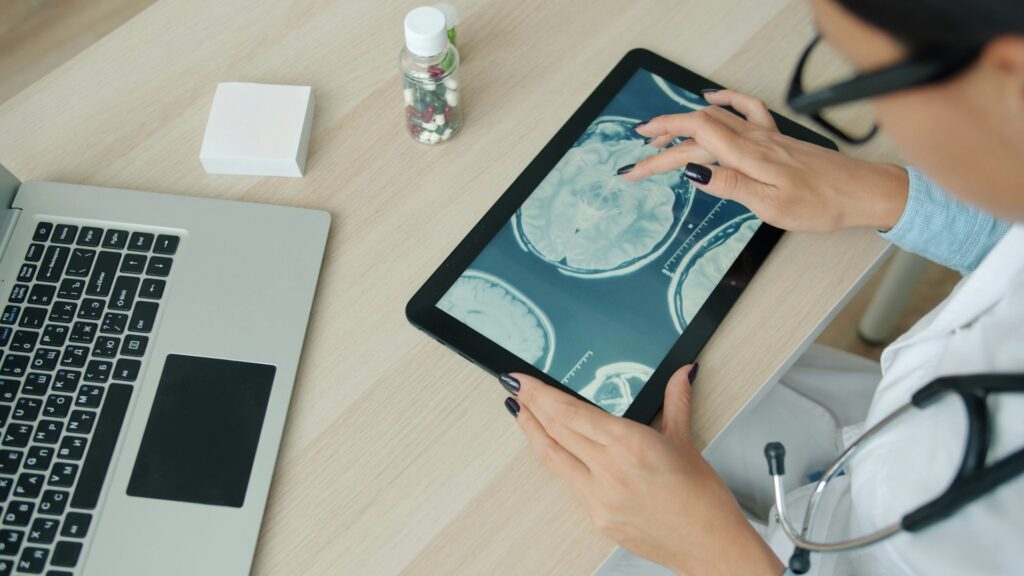Data scientists are revolutionizing the healthcare industry by leveraging data analytics to enhance patient care, streamline operations, and drive innovation. This transformation is evident in various facets of healthcare, from predictive analytics to personalized medicine.
But how data scientists are using data is not just revolutionary for healthcare facilities, it’s essential.
According to HealthTech Magazine, “The average hospital produces roughly 50 petabytes of data every year. That’s more than twice the amount of data housed in the Library of Congress.”
Without skilled personnel to manage and analyze it, this medical data becomes an expensive, unmanageable tangle of stats and trends that could improve patient outcomes, organizational operations, and the overall health and effectiveness of its workforce.
Enter the data scientist, whose experience with big data, artificial intelligence, and other technologies allows them to analyze and utilize information for a variety of positive outcomes. Adjusting your healthcare industry hiring practices to include data scientists could be the key to revolutionizing your organization and the wider healthcare industry.
The Role of Data Scientists in Healthcare
The average hospital produces 50 petabytes (50 million gigabytes) of data every year. Yet only around 3% of that data is utilized. The right personnel on your team can ensure more data is being used to improve efficiencies, drive innovation, and create better outcomes for both healthcare employees and patients.
Healthcare-based data scientists collect and store data securely, analyze relevant groups of data, and report on outcomes, patterns, or predictions based on those analyses. They may take on the role of overall data manager, but will more likely be involved with analytics, business intelligence (BI), and the application of algorithms to gain more use from healthcare data. Data scientists collaborate with medical professionals and administrators to ensure the useful application of data.
Key Applications of Data Science in Healthcare
So, what sort of applications can healthcare-based data science offer?
Predictive Analytics for Disease Prevention
Healthcare data analytics covers analyzing historical data to search for patterns, but also utilizing that data to make meaningful predictions. Machine learning algorithms can be used for:
- Early detection of endemics and pandemics, or local disease outbreaks
- Improved chronic disease management via early intervention
- Targeted healthcare for communities or particular demographics
- Identifying patients at higher risk of certain conditions
A 2025 article in SLAS Technology highlights the development of predictive healthcare models that may be able to predict the onset of Alzheimer’s disease. With 7.2 million Americans suffering from this neurological condition, success in this field could represent a major breakthrough.
Personalized Medicine
There’s rarely a one-size-fits-all approach that’s effective for all patients. For example, some medications for hypertension cause life-altering side effects in some people, but these same medications can be ideal for others.
AI and ML use patient data to personalize medication and treatment options for improved outcomes.
Operational Efficiency
In all aspects of healthcare, operational efficiency is a top concern. Data on waiting times, equipment costs, billing codes, missed appointments, and patient portal utilization can all be carefully analyzed.
The results may indicate multiple areas for improvement, reducing costs or wait times, and improving patient outcomes and satisfaction.
Drug Discovery and Development
The use of data science in drug development shortens the journey to new medications. One data science company notes that datasets are useful for identifying potential drug trial candidates faster and more accurately.
Remote Patient Monitoring
Remote health monitoring technologies range from wearable devices to integrated IoT sensors in hospital equipment. Collating and analyzing data like blood pressure or blood sugar levels in real time can allow for earlier interventions while providing more information on chronic disease management.
Impact on Healthcare Industry Hiring
Hiring the right data scientists means your organization can make more data-driven medical decisions. Approximately one-fifth of all data science hires are in the healthcare industry. Organizations must be clear about the required skills and qualifications, such as:
- A bachelor’s or master’s degree in computer science, statistics, or engineering
- Proven data analysis skills
- Data product development and innovation
- Performance improvement skills
- Experience with clinical analytics
Healthcare organizations may struggle to attract skilled data scientists due to a lack of experience in hiring in this field. They may need assistance from a trusted talent specialist to approach the relevant talent pools.
Hiring for Data-Driven Healthcare
There are reasons why some organizations haven’t adjusted their hiring strategy to include data-focused personnel. Healthcare data privacy is a top concern for many organizations shifting to more data-driven frameworks, and a worry for patients as well. But the future of healthcare data science is likely to include more robust security frameworks at a foundational level.
Investing in skilled data scientists now offers the potential benefit of cross-industry collaboration, particularly as AI and ML continue to emerge and improve. Data science talent acquisition is simpler when you work with specialists who can help match your healthcare organization with enthusiastic, skilled candidates. Connect with MRINetwork to find out more.

Connect with MRINetwork